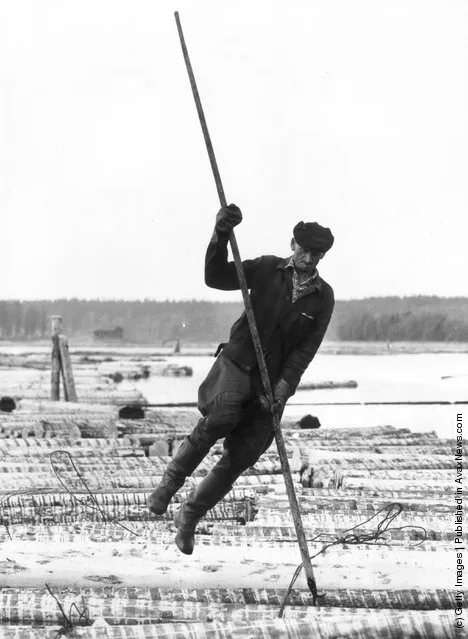
A raftsman transporting timber over 3000 miles of waterway to the harbour town of Kemi. (Photo by Keystone/Getty Images). 1980
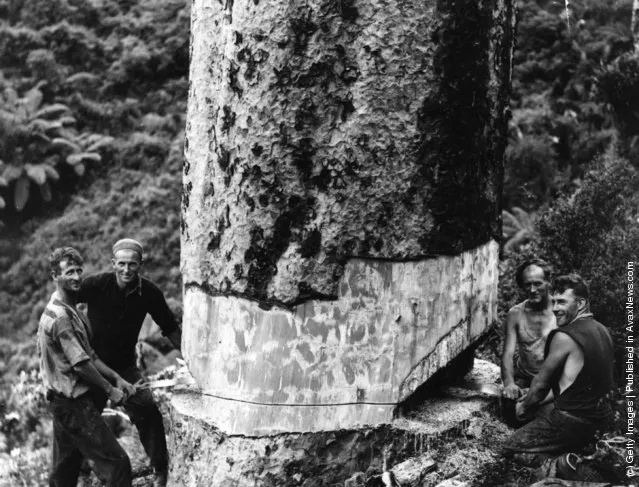
Four smiling bushmen saw down a kauri tree. (Photo by Three Lions/Getty Images). New Zealand, circa 1930
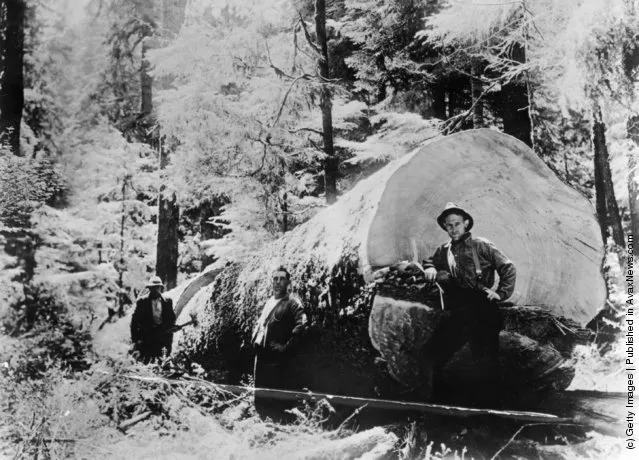
Lumberjacks beside the trunk of a huge felled tree. (Photo by Hulton Archive/Getty Images). Circa 1910
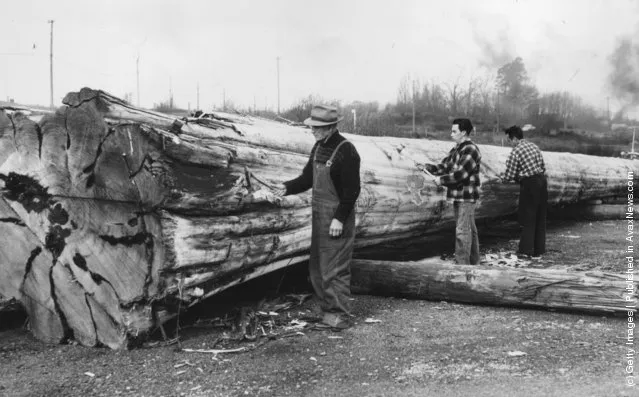
Chief of the Kwakiuth Tribe of the British Columbian Indians making the first cuts on a huge log which will be carved into a Totem Pole to be presented to Her Majesty Queen Elizabeth II at the centennial celebrations in the Province of British Columbia, Cananda. (Photo by William A. Atkins/Central Press/Getty Images). 25th March 1957
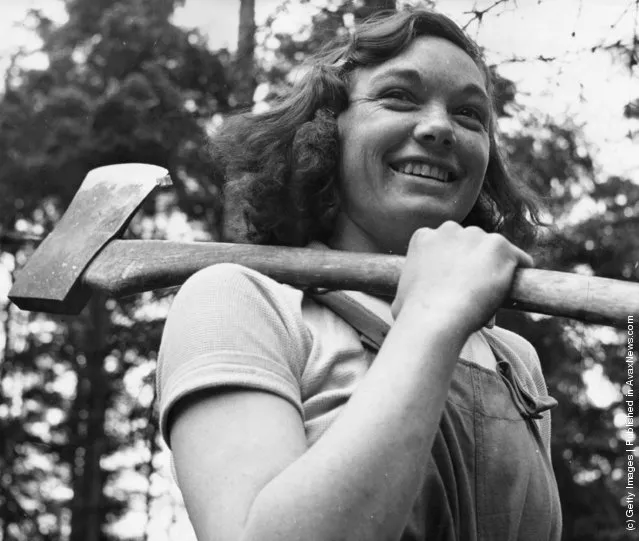
Miss Cicely Clark of The Women's Timber Corps at work in a timber camp in Suffolk as part of the war effort. (Photo by Horace Abrahams/Keystone Features/Getty Images). 1942
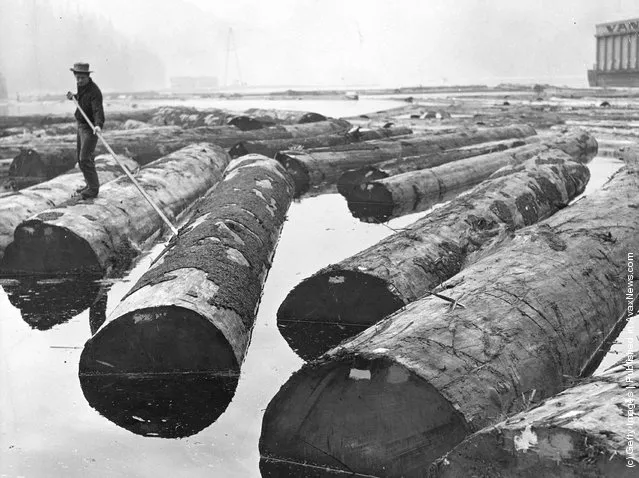
Logs being sorted for distribution to Pacific Mills Ltd pulpmill at Ocean Falls, British Columbia (Photo by Keystone/Getty Images). Circa 1935
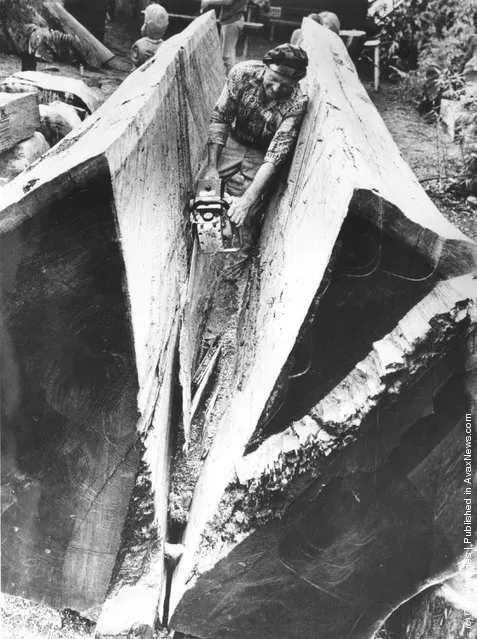
A man sawing a Californian Redwood tree with a diameter of six feet in two with a chainsaw. (Photo by Central Press/Getty Images). 4th July 1978
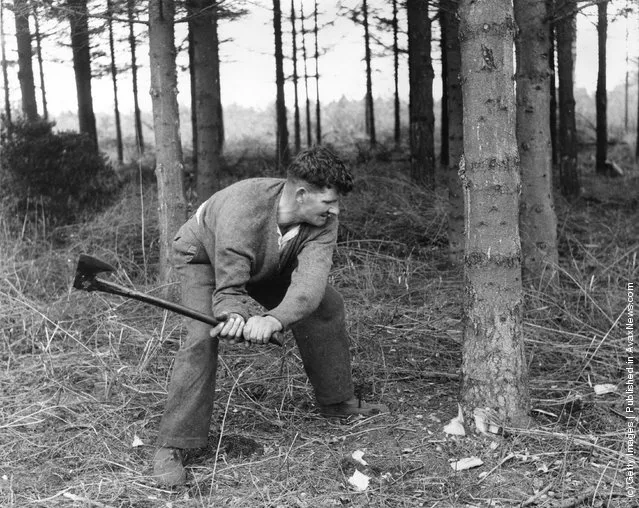
Forestry worker Bill Cordy prepares a Christmas tree for felling on a Forestry Commision Plantation near Thetford in Norfolk. (Photo by Lee/Central Press/Getty Images). 8th December 1960
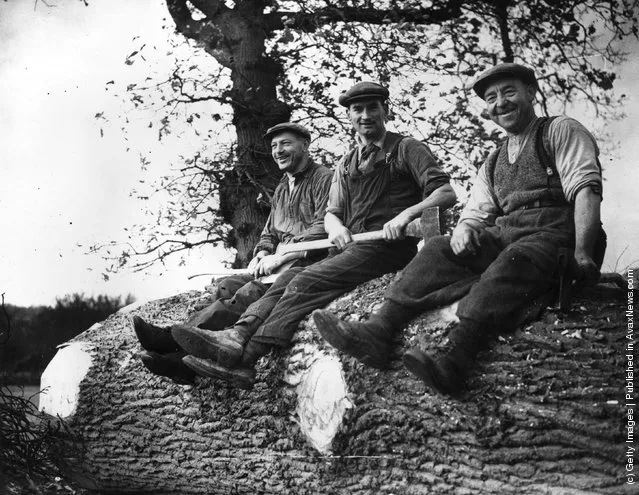
Three former Norwegian whalers working in Gloucester, England as loggers. (Photo by Maeers/Fox Photos/Getty Images). 19th November 1940
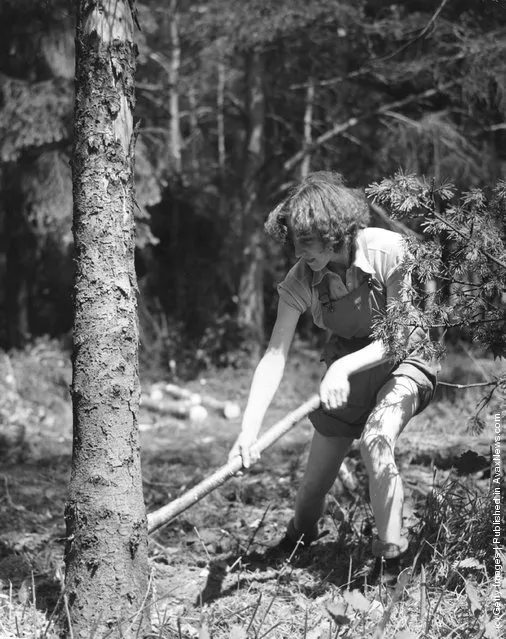
Miss Daphne Hubbard, a member of the Timber Corps, fells a tree at a timber camp in Bury St Edmunds, England. The Corps are helping in the war effort during the Second World War. (Photo by Horace Abrahams/Keystone Features/Getty Images). 1942
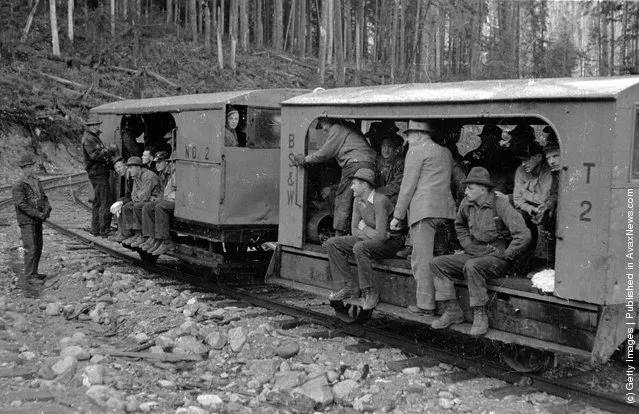
Loggers employed at Messrs Bloedel, Stewart and Welch's logging operation in British Columbia travelling to work on the railway known as “The Speeder”. Britain relies on Canada for almost all her wartime requirements of timber. (Photo by Kurt Hutton/Picture Post/Getty Images). 10th August 1940
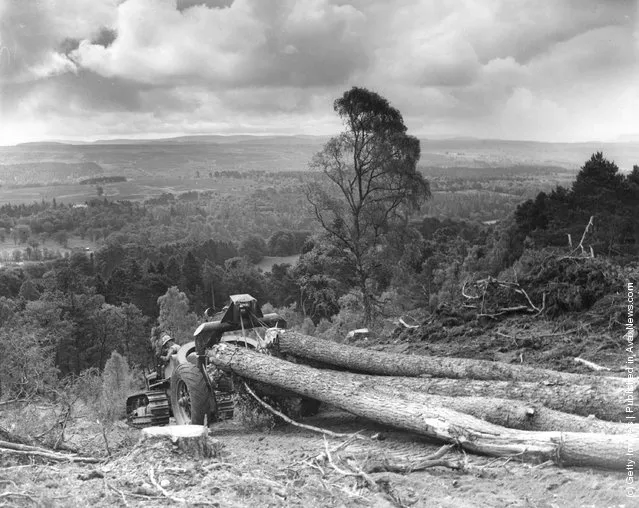
A logging sulky pulls timber down a slipway on the banks of Loch Ness in Scotland. Soldiers of the Canadian Forestry Corps are felling trees in a Scottish forest by Loch Ness as part of the Canadian war effort. Cutting down British timber will save importing wood from Canada and the USA and thereby save shipping space for vital cargoes. (Photo by Central Press/Getty Images). 27th February 1942
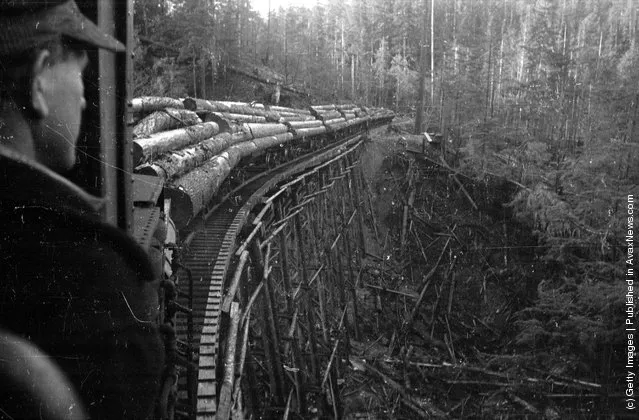
A logger transports timber to the river on a skeletal railway in the forests of British Columbia, Canada. Britain relies on Canada for almost all her wartime requirements of timber. (Photo by Kurt Hutton/Picture Post/Getty Images). 10th August 1939
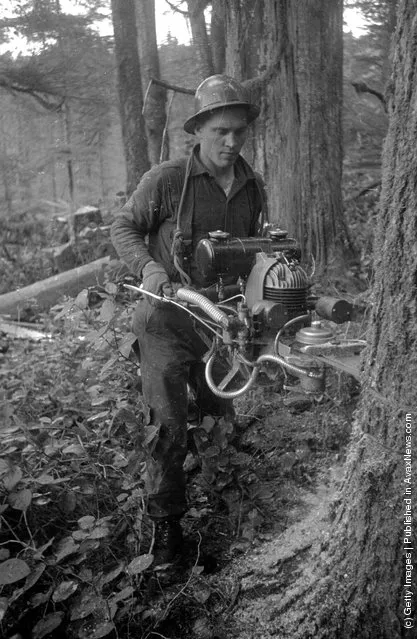
A logger uses a chain saw to fell a tree in the forests of British Columbia, Canada. (Photo by Kurt Hutton/Picture Post/Getty Images). 10th August 1939
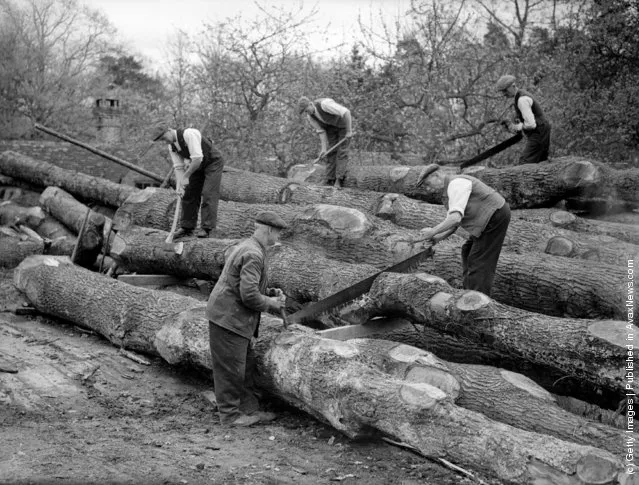
Workmen sawing trees on the estate of Sir George Courthope in Whilagh near Wadhurst. (Photo by Reg Speller/Fox Photos/Getty Images). 1st May 1940
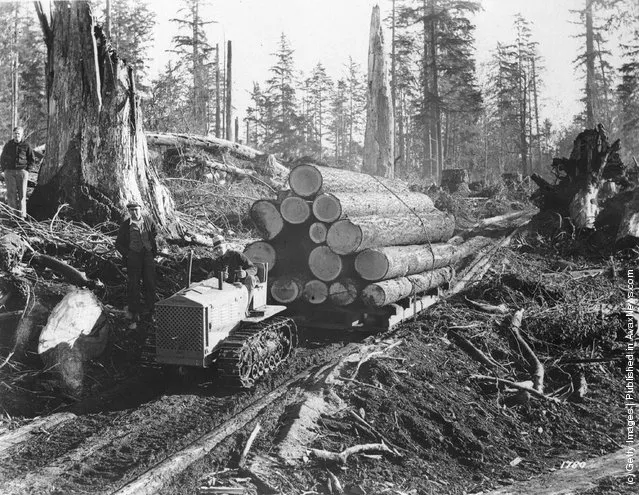
A tractor hauling logs at a lumbering camp in Oregon, USA. (Photo by Ferdinand S. Hirsh/Fox Photos/Getty Images). May 1938
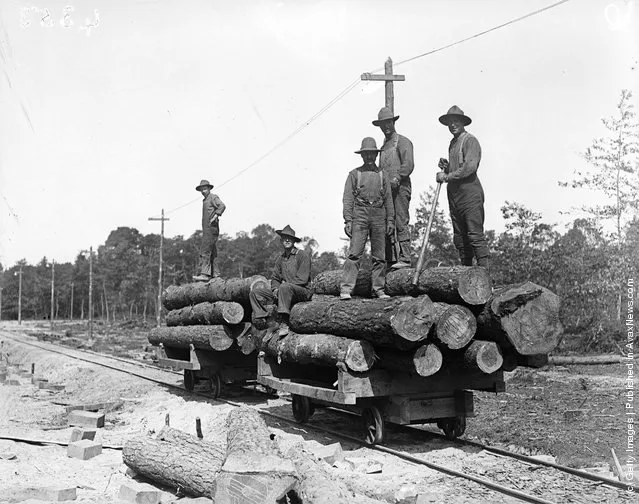
The Canadian Forestry Battalion loading logs at Virginia Water, Surrey during World War I. (Photo by Topical Press Agency/Getty Images). July 1916
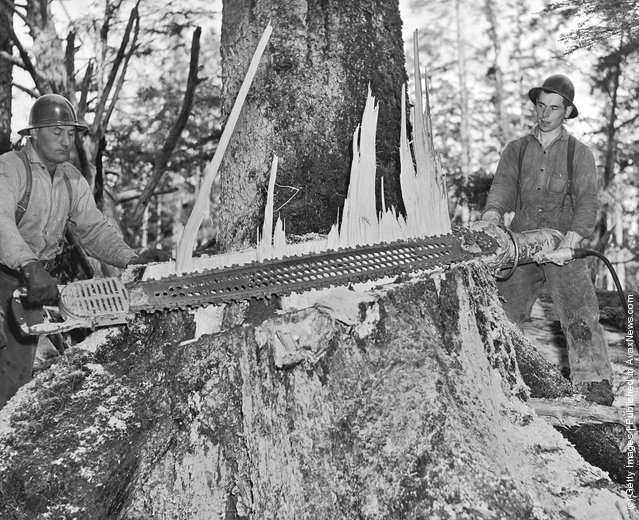
Two men using an electric power saw to fell a tree circa 1940's. (Photo by Keystone View/FPG/Getty Images)
18 Sep 2011 11:53:00,
post received
0 comments
